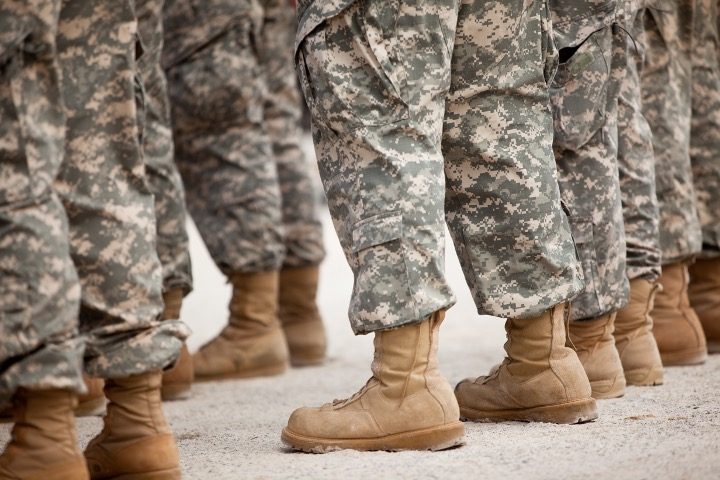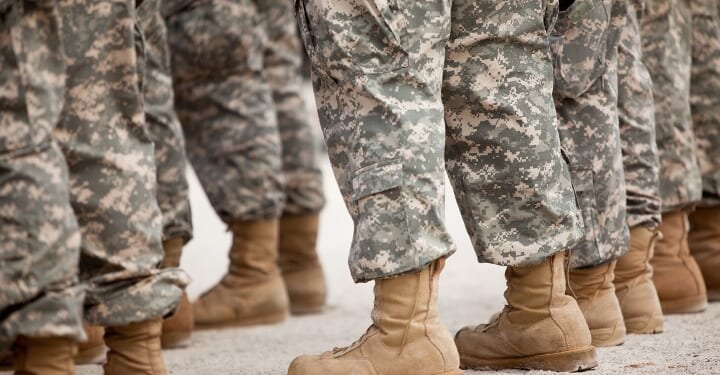
A federal appeals court has ruled that President Donald Trump’s attempt to deploy the National Guard in Illinois was unlawful, firmly rejecting the administration’s claim that protests against federal immigration enforcement near Chicago amounted to a rebellion.
On Thursday, the 7th Circuit Court of Appeals upheld a lower court’s finding that none of the legal conditions for federalizing a state’s Guard had been met. A three-judge panel — composed of appointees of Trump, Barack Obama, and George W. Bush — delivered a unified message: “Political opposition is not rebellion.”
The decision leaves the Guard under nominal federal authority but forbids its deployment — a pointed reminder that the state cannot answer civil protest with military force.
The Blitz
The story began on September 8, when the Trump administration launched “Operation Midway Blitz,” a crackdown on illegal immigration in Illinois. Federal officers swarmed the Chicago area, and protests grew outside the Immigration and Customs Enforcement (ICE) detention center in Broadview, a suburb long known for its weekly prayer vigils.
By the administration’s account, protesters were turning violent. Officials described a “coordinated assault” by “violent groups … aligned with domestic terror organizations” and warned of chaos, calling for troops to “protect federal personnel and property.”
But state and local police reported something else entirely. Most protesters, they said, were peaceful. The crowd rarely topped 200 people, “though the administration suggests it may once have reached around 300.”
On September 26, about 100 to 150 demonstrators gathered outside the Broadview facility. According to police reports and the district court’s findings, the protest remained peaceful, though some participants sat or stood in the driveway as part of a nonviolent blockade. Usually, ICE officers would physically remove such protesters, but that day they responded with pepper spray and tear gas. The Broadview Police Department called for limited mutual aid, and six additional patrol cars arrived. The road was closed for roughly five hours, and order was restored.
In the following days, Illinois authorities created a Unified Command, set protest zones, and made a handful of arrests as demonstrations continued. Yet on October 4, President Trump federalized the Illinois National Guard under 10 U.S.C. § 12406, claiming the state was in the grip of organized violence. The Department of Defense complied within hours. Illinois refused, calling the move an abuse of power.
The Lawsuit
Illinois and the City of Chicago sued, arguing that Trump’s order violated the Constitution and the Posse Comitatus Act, which bars the military from policing civilians. The 10th Amendment, they added, reserves law enforcement power to the states.
Last week, Judge April Perry of the Northern District of Illinois agreed, at least for now. In her ruling, she found no “rebellion or danger of rebellion” and no evidence that the federal government was “unable with the regular forces to execute the laws.” Where federal officials’ declarations conflicted with local accounts, she sided with the locals, finding the administration’s statements were “unreliable to the extent they omitted material information or were undermined by independent, objective evidence.”
The administration appealed and asked for an emergency stay, arguing that the president’s authority was absolute.
Can Courts Intervene?
The court began with a basic question: Can the president’s decision to call up the Guard be reviewed by courts at all? The administration said no, citing an 1827 case, Martin v. Mott, in which the Supreme Court held that the president’s call to repel invasion during the War of 1812 was beyond review.
The panel was unconvinced:
The Nation was then at war with the most powerful empire on earth. That empire had actually invaded the United States and was sacking its capital….
Today’s situation, it noted, involves political protests near an immigration facility. Context matters.
This is not like wartime mobilization, the judges said, and modern presidents do not get a blank check. Section 12406 lists three specific conditions — invasion, rebellion, or inability of regular forces to execute the laws — and the court has the power to determine if those conditions exist. “Nothing in the text of §12406 makes the President the sole judge of whether these preconditions exist,” making his decision subject to judicial review.
No Rebellion, No Excuse
The judges examined the evidence with measured clarity. The protests were small. Violence, where it occurred, was isolated. Federal operations continued without interruption. Immigration arrests even rose during the crackdown, undermining the claim that the government was “unable with the regular forces to execute the laws of the United States.” The panel observed:
Even applying great deference to the administration’s view of the facts, under the facts as found by the district court, there is insufficient evidence that protest activity in Illinois has significantly impeded the ability of federal officers to execute federal immigration laws.
The judges noted that “federal facilities … have remained open despite regular demonstrations,” and that “immigration arrests and deportations have proceeded apace in Illinois.” The administration itself had been “proclaiming the success of its current efforts to enforce immigration laws in the Chicago area.”
When defining rebellion, the court drew a bright line:
A protest does not become a rebellion merely because the protestors advocate for myriad legal or policy changes, are well organized, call for significant changes to the structure of the U.S. government, use civil disobedience as a form of protest, or exercise their Second Amendment right to carry firearms as the law currently allows. Nor does a protest become a rebellion merely because of sporadic and isolated incidents of unlawful activity or even violence committed by rogue participants in the protest.
The judges concluded:
Because rebellions at least use deliberate, organized violence to resist governmental authority, the problematic incidents in this record clearly fall within the considerable daylight between protected speech and rebellion.
States’ Rights
The court also addressed the 10th Amendment. Policing, it reminded, is a power “denied [to] the National government” and “reposed in the States.” The federal government may deploy the Guard only when clear constitutional grounds exist. Since the administration failed to meet the statutory conditions, it also failed the constitutional test.
The judges balanced harms. They found the administration’s interest in protecting property valid but overstated. Federal agents, they said, had managed fine without the Guard. They added:
By contrast, the administration’s likely violation of Illinois’s Tenth Amendment rights by deploying Guard troops in the state over the state’s objection “constitutes proof of an irreparable harm.”
The court concluded that keeping Guard troops temporarily under federal control was tolerable, but deploying them would cross a line. The order therefore allows federalization on paper but forbids boots on the ground.
The case will proceed in the 7th Circuit, where the administration hopes to reverse the district court’s injunction that blocks Trump from deploying the Guard in the state.
Meanwhile, a similar challenge is unfolding in the 9th Circuit over federalized Guard deployment to Portland, Oregon. In that case, a three-judge panel — including two Trump appointees — signaled doubts about whether courts may second-guess a president’s decision to call up troops. And just yesterday, Oregon Judge Karin Immergut extended her orders blocking deployment into Portland. She held that the administration’s justification was “untethered to the facts.”
Stitt Breaks With GOP Governors Over Trump’s Guard Deployment to Illinois
“Invasion From Within”: Trump’s Plan to Use the Military in U.S. Cities
Trump Orders “Specialized Units” for Rapid Deployment in D.C., Other Cities











